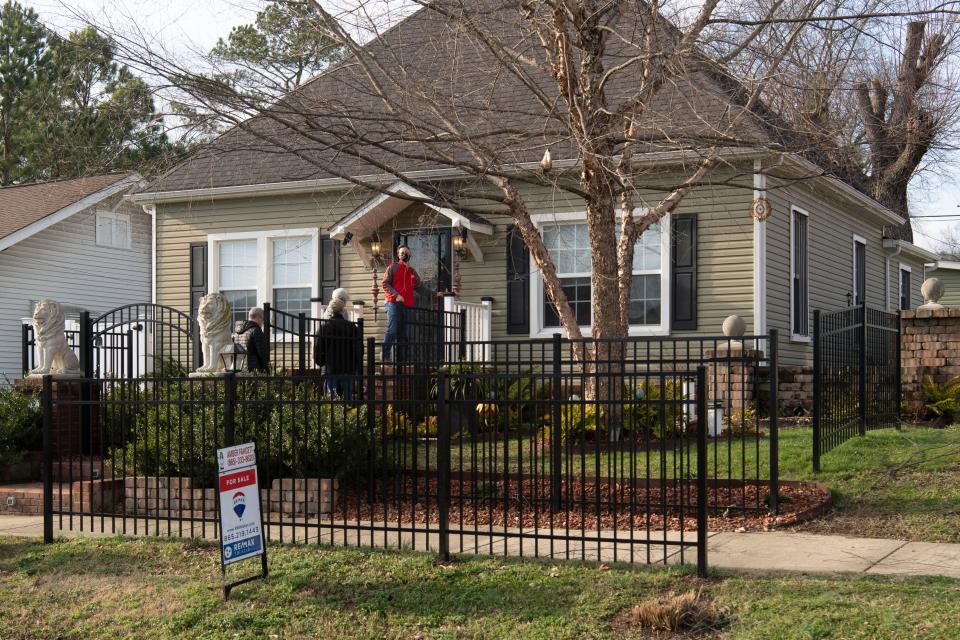The pandemic has made the affordable housing supply in the US worse | Opinion
The housing crisis in the United States stems from the fact that there is a lack of housing, which in turn has drastically raised rent and housing prices across the country. According to the national real estate brokerage Redfin, in one year the average rent rate increased by 15.2%. The housing price index has also increased, and Redfin analysts describe it as “the highest calendar-year increase in 34 years of data and substantially ahead of 2020’s 10.4% gain.”
This crisis has roots all the way back to the Great Recession starting in 2007. There were not enough houses built up during and after that time to keep up with the population, and now, as millennials continue to settle down and buy homes, the housing market cannot handle the demand. According to a study done by Freddie Mac, a mortgage loan company, the United States has an estimated deficit of 3 million homes compared to where the current homebuyer demand stands.
Since the COVID-19 pandemic began, it has been much harder to find construction workers and subcontractors. According to Emerson Claus, a contractor with 45 years of experience and president of the Home Builders and Remodelers Association of Massachusetts, the surge in homes during the pandemic caused a huge labor shortage. Claus now has trouble finding three workers, when he used to have nine at all times, not including contractors and anyone else they work with.

Your state. Your stories. Support more reporting like this.
A subscription gives you unlimited access to stories across Tennessee that make a difference in your life and the lives of those around you. Click here to become a subscriber.

Furthermore, higher costs and supply chain issues cause the construction of new houses to be slower. Zoning rules cause a threat to the housing crisis as well by not allowing contractors to buy and split up land. Therefore, first-time or lower-income homebuyers are not given the opportunity to buy smaller housing on a smaller scale because the houses built are too large or expensive for the majority of market demand.
Hear more Tennessee voices: Get the weekly opinion newsletter for insightful and thought-provoking columns.

The NIMBY (not in my backyard) social movement further discourages high-density housing units to be built, decreasing the housing supply and the number of affordable housing units constructed. Because of these issues, in order to make money, contractors and builders are forced to take on projects that break down and rebuild houses. This does not increase the supply of housing or help individuals have affordable housing. While some housing does need updating, it is important that it is a priority of construction workers and contractors to have projects to create new housing, especially since the demand is extremely higher than the supply and will only continue to increase.
As for solutions, the best way to combat the economy and inflation is to increase wages and the supply of houses. It is imperative that the United States' federal minimum wage is increased. The last time the federal minimum wage was increased was in 2009, when it rose from $6.55 to $7.25 per hour. According to the Economic Policy Institute, the minimum wage has lost 21% of its value since then.

THE LATEST NEWS RIGHT AT YOUR FINGERTIPS
Get the latest local news, sports scores and more directly on your phone. Download the free Knox News mobile app.
Another way to support income is to support unions in order to leverage less income inequality and improve wages on a smaller scale. Furthermore, it is necessary to increase the number of houses in the housing market. Harmful zoning laws need to be done away with so construction companies can build the new houses for the demand of lower costs, smaller and denser units. Additionally, programs need to be implemented to inspire young people out of high school to pursue construction jobs.
Lilly Morris is a third-year student at the University of Tennessee.
This article originally appeared on Knoxville News Sentinel: The pandemic has made the affordable housing supply in the US worse

